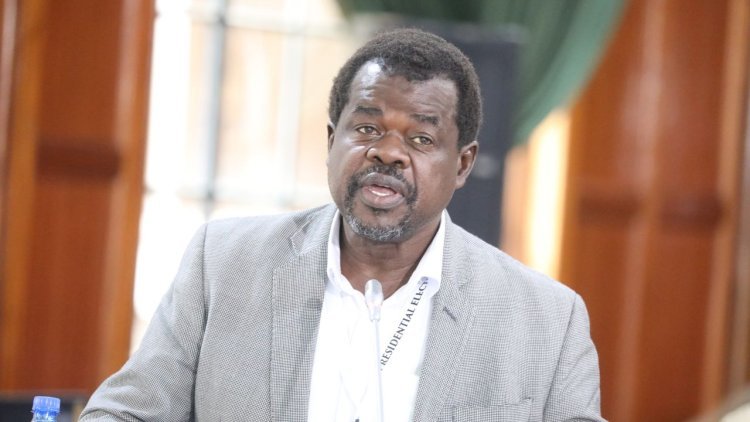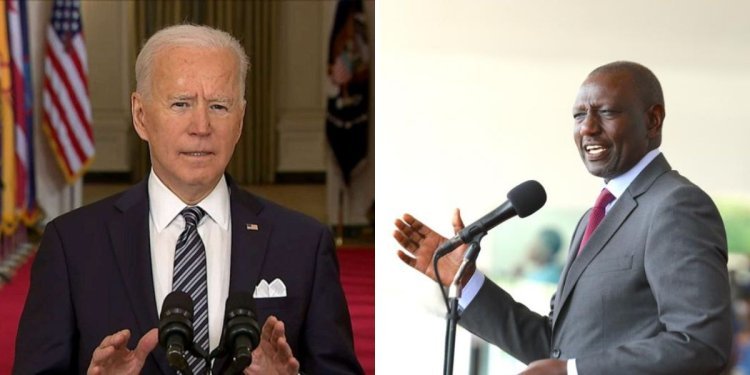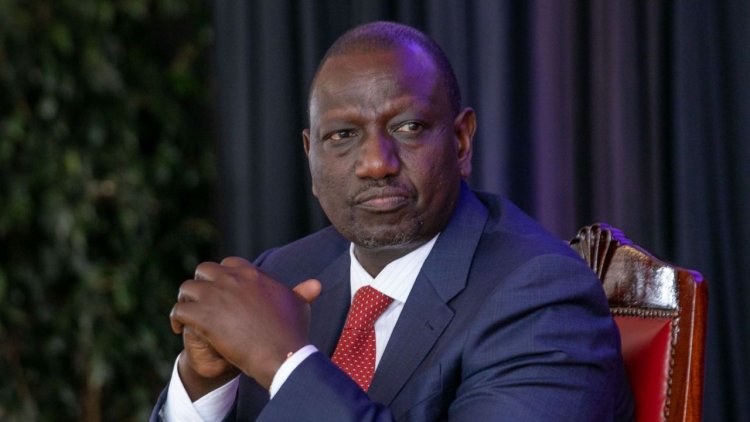Omtatah Calls For Kenya To Copy US In Voting For Presidents
Omtatah expressed a strong belief that the Presidency was not devolved just like all other organs of governance in what he terms as a flaw in the Constitution.

Busia senator, Okiya Omtatah on Monday, June 12 called for amendments to the Constitution of Kenya to have a President of the Republic of Kenya elected by a popular vote at the county level instead of national.
In a Twitter thread, Omtatah expressed a strong belief that the Presidency was not devolved just like all other organs of governance in what he terms as a flaw in the Constitution.
He suggested the amendment of Article 138 of the Constitution to devolve the presidency to the 47 counties, similar to what is done to all 50 states in the United States (US).

Side-by-side image of US President Joe Biden and President William Ruto of Kenya. /VIRALTEAKE
"Hence for me, the solution lies in amending Article 138 of the Constitution to devolve the presidency by removing the provision inadvertently created in law for the ethnic mobilisation of the national electorate at presidential elections,” he said.
“There is an urgent need to fully devolve the presidency to the 47 counties, the way the American founding fathers devolved their presidency to all the states that make up the United States of America.”
Currently, Article 138 (4) of the Constitution reveals that a candidate shall be declared elected as President if the candidate receives more than half of all the votes cast in the election; and at least twenty-five per cent of the votes cast in each of more than half of the counties.
The Human Rights activist added that it is only by ensuring that a President is elected by a popular vote weighted at the county level and not nationally that the stranglehold on national politics by the big five tribes will be broken.
“Each county would be assigned the number of electoral points equivalent to the number of constituencies it has plus one extra point underscoring that all counties are equal. We have 290 constituencies + 47 counties totalling 337 electoral points,” he explained further.
“One would be required to win the popular vote in the number of counties required to garner at least 169 electoral points (being more than half (or 50% + 1) of the points).”
Omtatah expressed the belief that the move would reduce the political powers of the big five tribes owing to their huge populations in the country and that the tribes would only matter during a national tally.
“That way, the big five tribes (Luhya, Kamba, and Luo (i.e. NASA) on the one hand, and the Kalenjin & Kikuyu (Jubilee) on the other), which dominate national politics in Kenya simply due to their sizeable populations will be cut down to size given that significant members of these five tribes are minorities in other counties. The tribes only become significant when tallied nationally," he added.
He further argued that the change in voting in the presidential election would allow candidates hailing from Lamu for example to communicate to its residents the agenda for the county
"And with that, the seeds for issue-based national politics would have been planted and even an El Molo with the right ideas will have a realistic opportunity to be elected the President of Kenya," he concluded.
During the US general election, people in every state across the country vote for one President and Vice President. When Americans go to the polls in November they will select their favorite presidential candidate and their running mate.
When people cast their votes, they are actually voting for a group of people called electors. Except in the states of Maine and Nebraska, if a candidate receives the majority of the votes from the people of a state then the candidate will receive all electoral votes of that state.
The presidential nominee with the most electoral votes becomes the President of the United States.
The process moves to the electoral college whereby electors or representatives from each state (50) in numbers proportional to the state’s population cast their vote and determines who will be president. Each state gets a certain number of electors based on its representation in Congress.
There are a total of 538 electors selected according to each state’s policy. Each elector casts one vote following the general election and the candidate who gets more than half (270) wins.
It is notably not the first time the legislator is suggesting changes to the Presidency. Amidst the heated debate that emerged from Fafi MP, Salah Yakub's, proposal to increase President William Ruto's current term limit to 20 years, Omtatah opined that Kenyan presidents should hold a term of three years instead of the current five.







